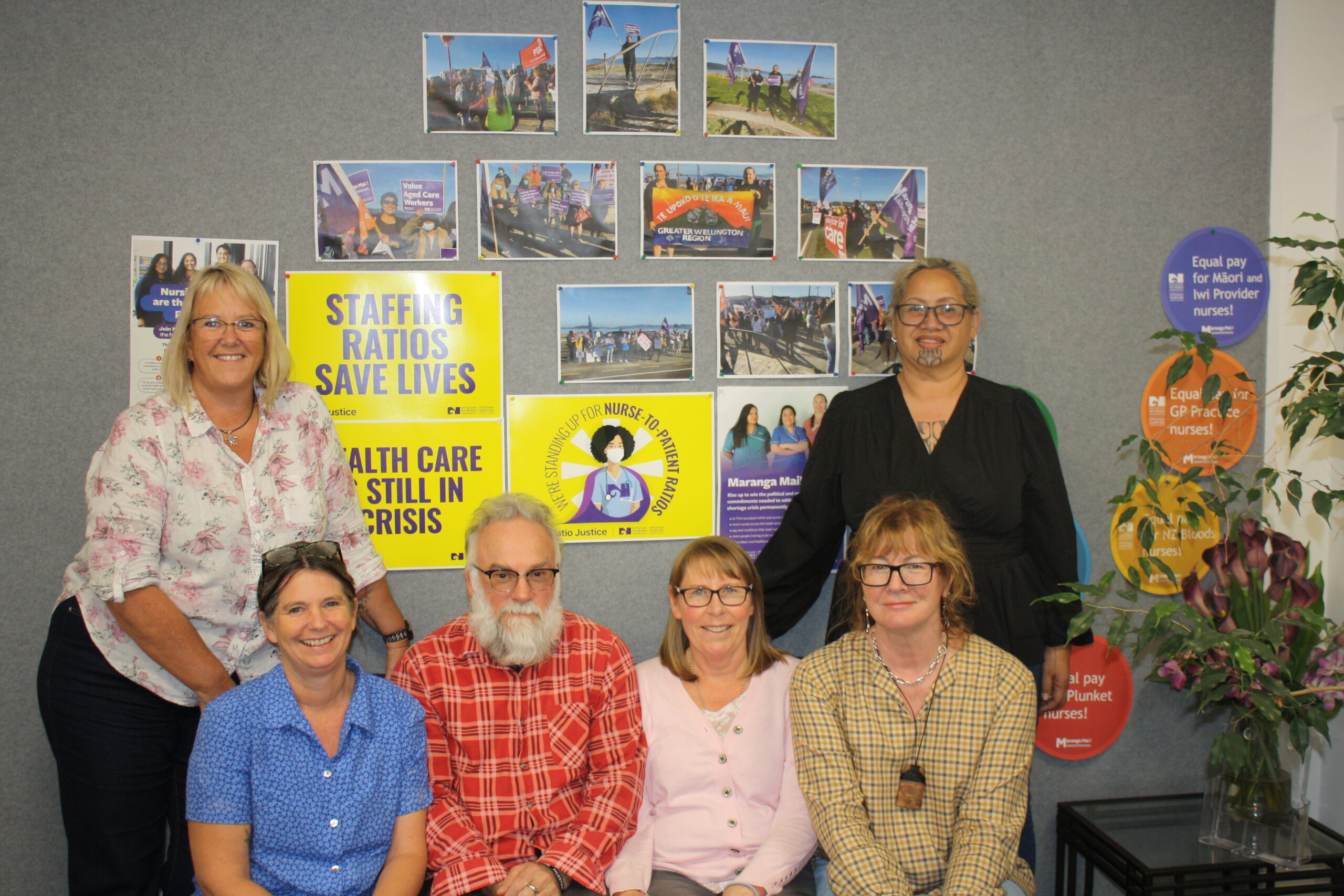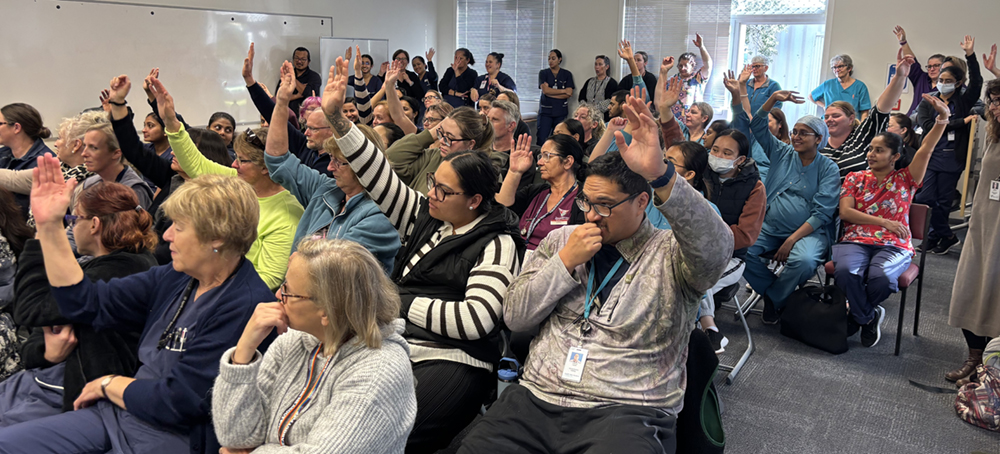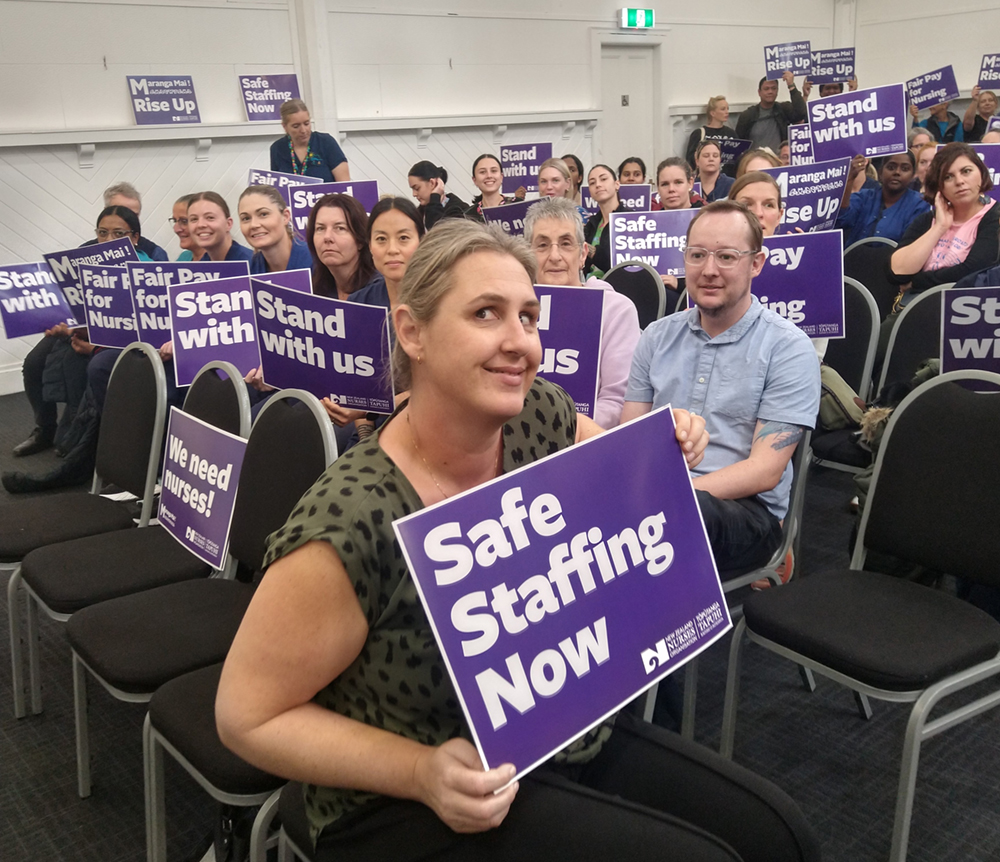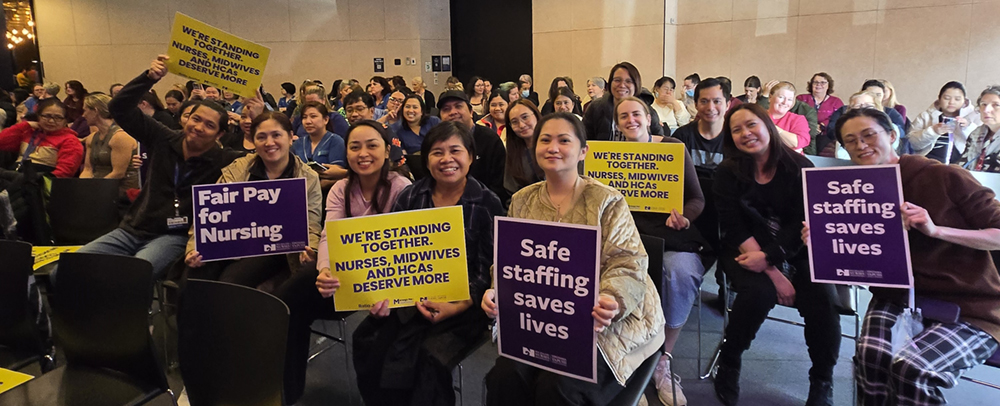At more than 50 union meetings around the country over the past fortnight, members considered how to respond to Te Whatu Ora’s offer for its 2024-2026 collective agreement with Tōpūtanga Tapuhi Kaitiaki o Aotearoa — NZNO.
The collective covers about 36,000 NZNO members who work at Te Whatu Ora.
Members had already strongly rejected the offer, made on May 9, which did not commit to safe staffing or nurse-to-patient ratios, match cost of living increases or guarantee full nurse graduate recruitment, the bargaining team told Kaitiaki last month.
And after the final mass union hui on Friday — in Dargaville, Ashburton, Taumarunui and Gisborne — it became clear members were deeply unsatisfied, voting to:
- Call on Te Whatu Ora to return to bargaining with an offer that includes safe staffing and cost-of-living pay increases.
- Endorse a nationwide 24-hour strike and local actions (if bargaining fails).
A planned strike ballot this week is now on hold. But bargaining team member Noreen McCallan said the expectation was Te Whatu Ora would bring an improved offer to the table that would meet cost-of-living increases and provide safe staffing so nurses and kaiāwhina could provide good patient care.
If not, strike plans would progress, she said.
‘People see how busy nurses and health-care assistants are when they go to hospitals — and they see them having to ration care because they are continually short-staffed.’
On June 3, Te Whatu Ora publicly called on NZNO to return to bargaining, interim chief executive Dale Bramley saying it was “disappointed” members had rejected an offer he believed was “fair”.
In a media release, Bramley said nurse pay rises had outperformed the broader labour market between 2011 and 2024, with the top salary step increasing by $45,377 in that time.
However, he acknowledged that increase included nurses’ historic $4 billion pay equity settlement in 2023.

NZNO chief executive Paul Goulter slammed what he described as an attempt to to publicly “vilify” nurses, by conflating a hard-fought gender-based pay correction with bargaining.
Nor would it work, he said.
“People see how busy nurses and health-care assistants are when they go to hospitals — and they see them having to ration care because they are continually short-staffed and under-resourced.”

Most people wanted the Government to support nurses by paying them fairly and safely staffing hospitals, he said.
Back to the bargaining table this week
Bargaining resumes this week on Wednesday, June 18.
Bargaining began in September 2024, with initial strike action in December over pay and safer staffing, amid a nationwide pause on safe staffing calculations by Te Whatu Ora.
Nurses also joined striking doctors on nationwide May Day rallies, alongside 370 Auckland perioperative nurses’ striking over forced overtime at incorrect pay rates.

















